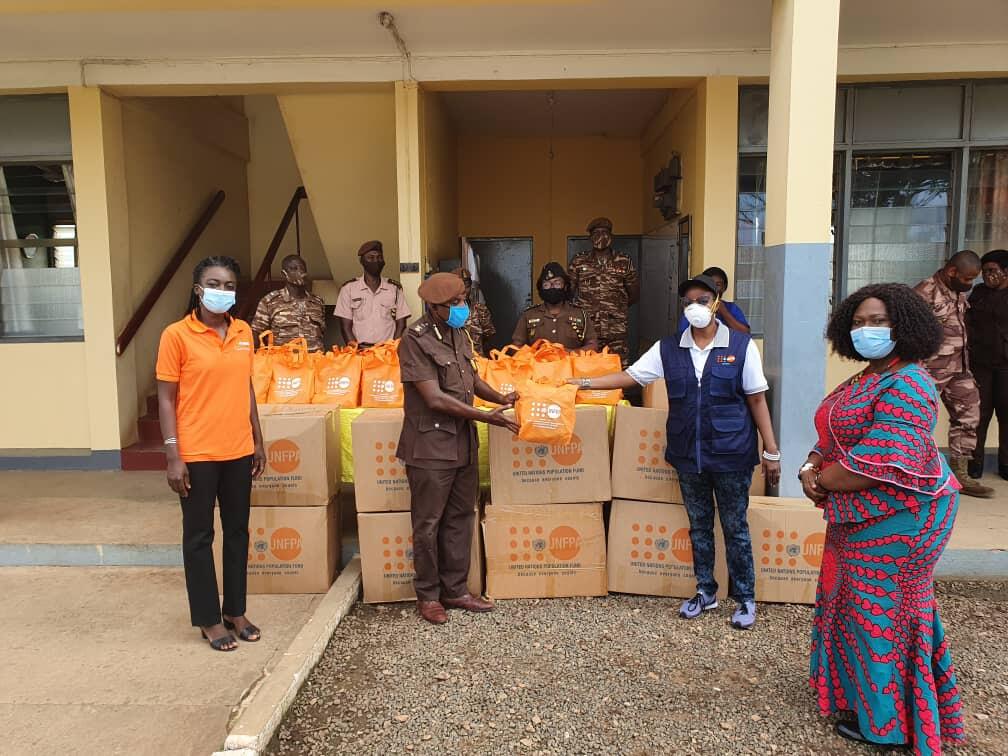Since the first case of COVID-19 was reported in Ghana in March this year, many lives have been disrupted in many ways. For vulnerable groups of young people, this disruption has been more acutely observed. This is why on 25th June, 2020, UNFPA Ghana, as part of commitment to support the Government of Ghana and civil society groups in the mitigation of the effects of COVID-19, carried out two donation exercises to young people in detention and young people living with HIV.
The first donation was made at the Senior Correctional Centre in Accra, that houses juvenile offenders. At the presentation ceremony the Assistant Director of Prisons, David Ofosu Addo, receiving the items on behalf of the facility said, “We thank UNFPA for this great assistance, this is the second batch of donations received from UNFPA. The first one was made through the Women in Leadership International, WILI”. He used the opportunity to confirm UNFPA’s partnership with the facility which he described as a ‘great journey that we are on together’. Adding that the reproductive health education sessions planned with the inmates will go a long way to help reform the inmates. He said this after the Deputy Representative of UNFPA, Dr. Agnes Ntibanyurwa, presented dignity kits to the prison to support the young people in detention. Each kit comprised bathing and laundry soap, tooth paste and toothbrushes, underwear, towels, male condoms, hand sanitizers and face masks.
The second donation took place later that morning on the premises of the Hope for Future Generations, an Implementing Partner of UNFPA Ghana, that works to support young persons living with HIV. At the ceremony, Dr. Agnes Ntibanyurwa handed over 500 hygiene kits for girls, 200 hygiene kits for boys and 500 non-perishable food packs containing beverages, canned fish and biscuits. Due to the hardships and loss of employment of many people during this pandemic, the food packs are to enable young people with HIV to have emergency food supplies since some of the anti-retroviral treatment (ART) causes frequent and increased hunger levels for many of them who then do not take the drugs because they do not have any food. Mrs Cecelia Senoo, Executive Director of HFFG who received the items to be distributed in Accra, Kumasi and Tamale, expressed profound appreciation to UNFPA. She said that the items will be a great support the young people living with HIV and will be an added boost to make them patronize their reproductive health education sessions.
These donations were part of ongoing projects at UNFPA which is supported by the Norwegian Government and UBRAF funding.


